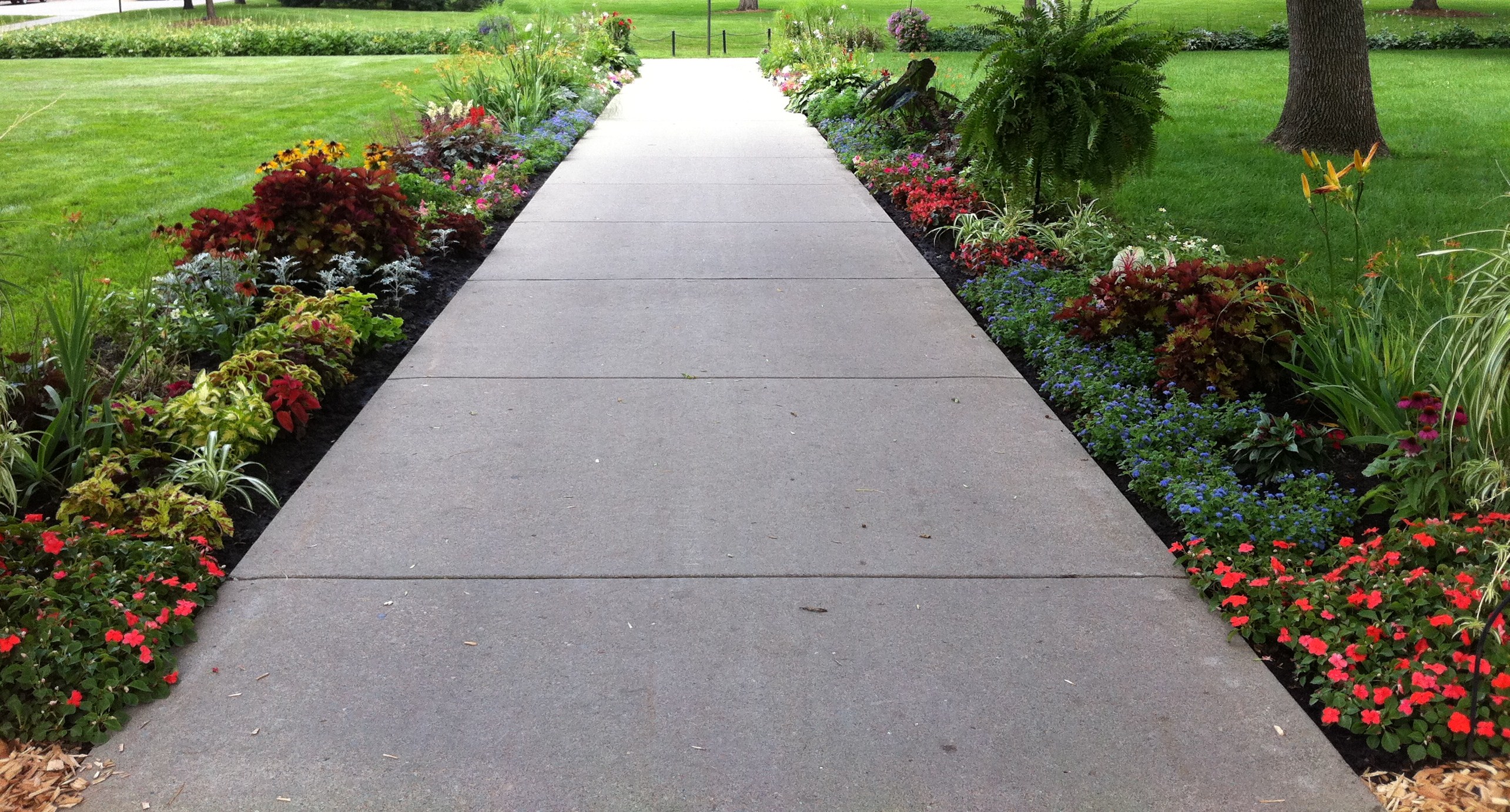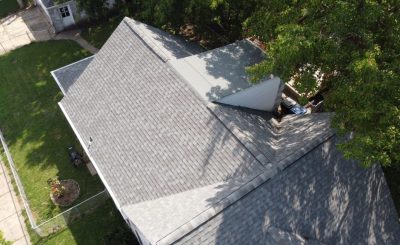
Concrete walkways or sidewalks leading up to and continuing around a property add safety, value, and curb appeal. Add attractive landscape and instantly a picture postcard comes to mind. Welcome visitors with a beautifully designed lighted walkway and sidewalk system. Designs abound when it comes to creating stylish colored and patterned walkways. While the standard plain gray sidewalk is commonly chosen for safety and budget reasons, adding pattern and color really dresses it up. During recent decades, concrete has gone from utility to creativity surpassing boring and forging ahead to exciting. Afforded by changes in concrete usage and style, landscape and concrete designers have eagerly taken on new challenges.
Most concrete walkways or sidewalks are approximately four inches thick with cost varying from $6 to $12 per square foot. Obviously, larger and elaborately designed walkway systems will cost more than a simple basic sidewalk. Plan accordingly for budget and schedule changes. Sealing a concrete walkway increases safety value as well as the finished product’s lifespan. For ultimate ROI and curb appeal, find a reputable concrete contractor and hire a skilled landscape and concrete walkway designer. Prior to the project start, check for references, licenses, certifications, and proper insurance coverage.
Concrete steps or stairs, similar to concrete sidewalks and walkways, have surpassed previous standards, style and quality options. One may still purchase a plain standard precast two to five step concrete stair set. However, options have changed with some including solar lighting. A simple three step concrete stair set may be poured using frames or purchased as precast step systems. Common materials and tools will include, safety glasses, gloves, wood for frames, a saw, framing square, tape measure, hammers, shovels, levels, concrete mix, water sprinkler, edger, wheelbarrow, line level, tamper, plumb bob, spade, broom, mason’s hoe, and other necessary tools. When pouring cement, weather permitting, allow four to five days for planning, layout, and curing time. Unskilled DIY homeowners should consider hiring a licensed cement contractor skilled at working with poured concrete and precast step systems. Many options are available and should be explored in order to make an informed decision. Prior to planning and purchasing materials, consult local building codes and homeowner association guidelines. The rise and run of poured reinforced (rebar) concrete steps, similar to precast steps, must conform to local building codes. A building inspector may force removal of non-conforming concrete steps systems.
Either way, an appropriately poured walkway can add a ton of character and value to your property. When choosing a concrete company, always look for one that has great online reviews as a bad concrete company can leave your property looking worse than it did before.




